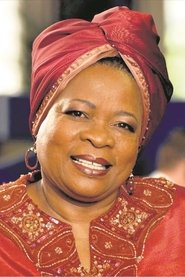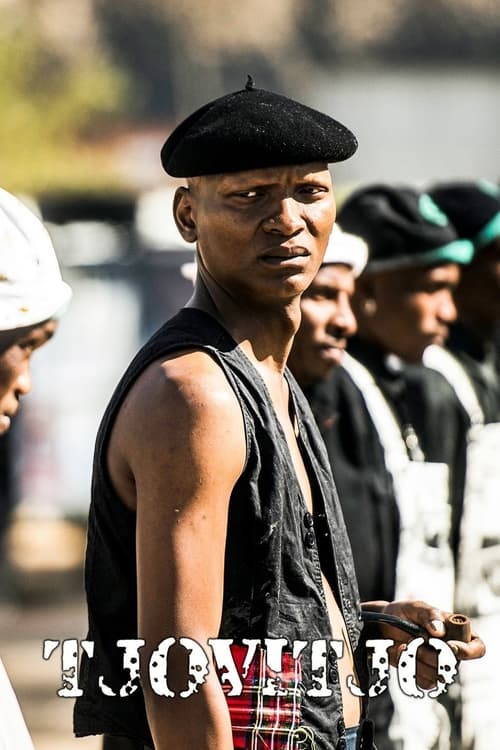
Ask Your Own Question
What is the plot?
In Episode 3 of "Nqobile," the episode opens with Nqobile waking up in her small, cluttered apartment, the morning light filtering through the curtains. She looks tired, her eyes heavy with the weight of her responsibilities. As she prepares for the day, she glances at a photo of her late mother on the wall, a reminder of her past and the struggles she faces. Nqobile's internal conflict is palpable; she feels the pressure of her family's expectations and her desire to forge her own path.
The scene shifts to Nqobile at her workplace, a local community center where she is involved in organizing youth programs. She is met with skepticism from her boss, who questions her ability to lead a new initiative aimed at empowering young women in the community. Nqobile, determined to prove herself, passionately defends her vision, highlighting the importance of mentorship and support. Her boss reluctantly agrees to give her a chance, setting the stage for her to take charge.
Later, Nqobile meets with a group of young women who are interested in participating in the program. The atmosphere is charged with excitement, but Nqobile senses their hesitation and fear. She shares her own story of overcoming obstacles, hoping to inspire them. As she speaks, her vulnerability resonates with the group, and they begin to open up about their struggles. This moment marks a turning point for Nqobile, as she realizes the impact she can have on their lives.
The narrative then shifts to a subplot involving Nqobile's friend, Thandi, who is dealing with a toxic relationship. Thandi confides in Nqobile about her struggles, expressing feelings of entrapment. Nqobile, recalling her own experiences, urges Thandi to prioritize her well-being and consider leaving the relationship. This conversation deepens their bond, showcasing Nqobile's role as a supportive friend, even as she grapples with her own challenges.
As the episode progresses, Nqobile faces a significant setback when she learns that funding for her program has been cut. Devastated, she confronts her boss, who reveals that the decision was made due to budget constraints. Nqobile feels a surge of frustration and helplessness, but she quickly resolves to find alternative solutions. This moment highlights her resilience and determination to not let obstacles define her.
In a pivotal scene, Nqobile attends a community meeting where local leaders discuss the importance of youth programs. She seizes the opportunity to speak passionately about her initiative, advocating for the young women in her community. Her heartfelt speech captures the attention of several influential figures, leading to a heated discussion about the need for support. This confrontation serves as a catalyst for change, as Nqobile's voice begins to resonate beyond her immediate circle.
The episode culminates in a dramatic confrontation between Nqobile and a rival community leader who dismisses her efforts. The tension escalates as they exchange heated words, with Nqobile standing her ground and refusing to back down. This confrontation not only showcases her growth as a leader but also sets the stage for future conflicts within the community.
As the episode draws to a close, Nqobile returns home, emotionally drained but resolute. She reflects on the day's events, feeling a mix of hope and uncertainty about the future. The final shot lingers on her determined expression, hinting at the challenges that lie ahead as she continues to fight for her vision and the young women she aims to empower.
What is the ending?
In the ending of "Nqobile," Season 1, Episode 3, Nqobile confronts her past and the choices she has made. The episode culminates in a tense confrontation with her estranged father, leading to a moment of emotional catharsis. Nqobile ultimately decides to embrace her identity and the complexities of her family history, while her father is left to grapple with the consequences of his actions. The episode closes with Nqobile finding a sense of peace and determination to move forward.
As the episode unfolds, we begin with Nqobile standing in front of a mirror, her reflection revealing the turmoil within her. The camera captures the subtle tremor in her hands as she prepares to meet her father, a man she has long held resentment towards. The weight of her emotions is palpable, and the audience can sense her internal struggle between anger and the desire for reconciliation.
Scene transitions to a dimly lit café where Nqobile has agreed to meet her father. The atmosphere is thick with tension; the clinking of cups and hushed conversations around them fade into the background as she waits. When her father arrives, the air is charged with unspoken words. He looks older, wearier, and there's a flicker of regret in his eyes. Nqobile's heart races, a mix of fear and anticipation coursing through her.
As they sit across from each other, the conversation begins awkwardly. Nqobile's voice trembles as she confronts him about the abandonment she felt as a child. Her father, struggling to articulate his feelings, attempts to explain his choices, but his words feel inadequate. The camera zooms in on Nqobile's face, capturing the pain and anger that flash across her features. She fights back tears, her vulnerability laid bare.
The scene shifts to a flashback, showing moments from Nqobile's childhood, highlighting the joy she once felt before her father's departure. The juxtaposition of these memories against the current confrontation deepens the emotional impact. Nqobile's father, in the present, begins to break down, revealing his own regrets and the burden of guilt he has carried. This moment of honesty creates a crack in the wall between them, allowing for a glimmer of understanding.
As the conversation progresses, Nqobile's anger begins to transform into a more complex emotion. She realizes that while her father's actions hurt her, they also shaped who she has become. The dialogue becomes more intense, with both characters raising their voices, but it's clear that they are both fighting for connection, not just to hurt one another.
The climax of the episode occurs when Nqobile stands up, her voice steady and resolute. She declares that she will no longer let her father's past define her future. This moment is powerful; the camera captures her determination as she walks away from the table, leaving her father in a state of shock. The audience can feel the weight of her decision, a turning point in her journey towards self-acceptance.
In the final scenes, Nqobile is seen walking through the streets, the sun setting behind her, symbolizing a new beginning. She takes a deep breath, her expression shifting from pain to a sense of liberation. The episode closes with her looking ahead, a small smile forming on her lips, indicating her readiness to embrace her identity and the complexities of her family history.
As the credits roll, we see her father sitting alone in the café, his face a mixture of sorrow and reflection. He is left to confront the reality of his choices, while Nqobile steps into her future with newfound strength. The episode ends on a note of hope, emphasizing the importance of confronting one's past to pave the way for healing and growth.
Is there a post-credit scene?
In "Nqobile," Season 1, Episode 3, there is indeed a post-credit scene that adds an intriguing layer to the episode's narrative.
As the credits roll, the screen fades back in to reveal a dimly lit room filled with shadows. The camera slowly pans to a figure sitting at a desk, their face obscured by the low light. The atmosphere is tense, with the sound of a clock ticking in the background, amplifying the sense of urgency.
The figure, eventually revealed to be a character from Nqobile's past, is seen sifting through old photographs and documents. Their expression is one of deep contemplation, mixed with a hint of regret. As they pick up a photo of Nqobile, a flicker of recognition and concern crosses their face.
The scene shifts slightly, showing a close-up of a newspaper clipping pinned to the wall, detailing a recent event that ties back to the main storyline. The clipping hints at a larger conspiracy that Nqobile is unknowingly entangled in, suggesting that the stakes are much higher than previously understood.
The episode concludes with the figure whispering a name, which echoes ominously in the silence, leaving viewers with a sense of foreboding and anticipation for what is to come. This post-credit scene effectively sets the stage for future conflicts and deepens the mystery surrounding Nqobile's journey.
What challenges does Nqobile face in her personal relationships in Episode 3?
In Episode 3, Nqobile grapples with the fallout from her recent decisions, particularly her strained relationship with her mother, who disapproves of her choices. This tension is palpable as Nqobile seeks her mother's approval while also trying to assert her independence. The emotional weight of their conversations reveals Nqobile's internal conflict between familial loyalty and personal ambition.
How does Nqobile's friendship with Thandi evolve in this episode?
In this episode, Nqobile and Thandi's friendship is tested when Thandi confronts Nqobile about her reckless behavior. Thandi's concern stems from a place of love, but it also highlights her own insecurities about their friendship. The emotional exchange between them is charged, showcasing Nqobile's frustration and Thandi's fear of losing her best friend, ultimately leading to a moment of vulnerability that strengthens their bond.
What pivotal decision does Nqobile make regarding her career in Episode 3?
Nqobile faces a crucial decision about whether to accept a job offer that could advance her career but would require her to relocate. This moment is filled with tension as she weighs the potential benefits against the emotional cost of leaving her family and friends behind. Her internal struggle is depicted through her restless nights and contemplative conversations with Thandi, ultimately leading her to a decision that reflects her desire for growth.
How does the episode explore Nqobile's relationship with her father?
In Episode 3, Nqobile's relationship with her father is explored through a series of flashbacks that reveal their complicated history. The audience sees moments of warmth juxtaposed with conflict, particularly regarding her father's expectations for her future. This exploration deepens Nqobile's character, showcasing her longing for paternal approval while also highlighting her desire to forge her own path.
What role does the community play in Nqobile's life during this episode?
The community plays a significant role in Episode 3 as Nqobile participates in a local event that brings together various characters from her life. This setting serves as a backdrop for her to confront her fears and insecurities. The interactions with community members reveal the support system she has, but also the pressure to conform to societal expectations, which adds to her internal conflict and shapes her decisions throughout the episode.
Is this family friendly?
In "Nqobile," Season 1, Episode 3, there are several elements that may be considered potentially objectionable or upsetting for children or sensitive viewers.
-
Emotional Conflict: The episode features intense emotional scenes where characters experience significant personal struggles, which may be distressing for younger viewers.
-
Family Tension: There are moments of conflict within family dynamics that could be uncomfortable, showcasing arguments or disagreements that may resonate with sensitive audiences.
-
Societal Issues: The episode touches on themes of social injustice and personal hardship, which may be heavy for children to process.
-
Mature Themes: Discussions around relationships and personal choices may include mature themes that could be confusing or inappropriate for younger viewers.
-
Visuals of Distress: Certain scenes may depict characters in distressing situations, which could evoke feelings of sadness or anxiety.
These elements contribute to a narrative that, while rich and engaging, may require parental guidance for younger audiences.



















